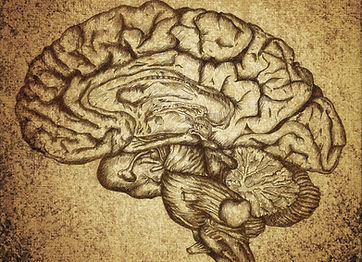
Services
Psychiatric Evaluation and Assessment

In our first visit, we will get to know each other and you will tell me about yourself. We will talk about what brings you to see me and what your goals are for the present moment and for the future. I will ask you questions about your life, relationships, and health. We will talk about how you feel and the content of your thoughts. I may order lab tests to rule out certain medical problems and to make sure we are addressing all aspects of your health that affect your mental wellbeing. Importantly, we will go at a pace that is set by you. I believe it is crucial to never feel rushed in this work and that is why all initial evaluation appointments are at least 90 minutes in length. It is important to me that you feel safe, heard, and supported, and that all of your questions are answered and any concerns addressed.
Medication/ Psychopharmacology

As a medical doctor, I will assess whether or not I think medications might be helpful for reducing your symptoms and helping you recover. Modern science has allowed for the development of some truly helpful molecules that can help ease many forms of mental suffering. Sometimes medications are necessary for symptoms to resolve, but the decision to take a medication is always a personal choice that I will help you make for yourself. If I think you might benefit from a medication, I will discuss this with you. We will talk about all of the intended benefits of medication, what we can expect from it, the possible side effects, possible risks, and any alternatives to the medication.
Psychotherapy

" The purpose of psychotherapy is to set people free..." - Rollo May
Psychotherapy (often called "talk therapy") is a cornerstone of treatment for mental suffering. Sometimes it is focused on finding solutions to specific problems, other times it involves processing of past experiences that are holding someone back in their present life. My approach to therapy involves aspects of several different types of therapeutic philosophies. Depending on the individual person's (or couple's) needs and goals, I incorporate different strategies that draw from cognitive-behavioral therapy, cognitive processing therapy, existential therapy, dialectical-behavior therapy, somatic processing therapy, psychodynamic therapy, and Gottman couple's therapy.
Integrative Psychiatry

Integrative practice emphasizes looking at the whole person and all aspects of wellness in formulating a diagnosis and treatment plan. It often involves complementary and alternative medicine, such as the use of botanical medicine, micronutrient supplements, nutrition optimization, movement, and lifestyle modification. As an integrative medicine provider, I use evidence-based, non-pharmaceutical interventions to assist in your recovery, to help restore balance in your life, and help you attain personal wellness.
Transcranial Magnetic Stimulation

Transcranial magnetic stimulation (TMS) is a very safe, non-invasive brain stimulation procedure that is FDA-approved for treatment-resistant depression and OCD. It has been demonstrated as an effective treatment for depression with anxiety as well. The brain consists of several important circuits of neuronal (brain cell) activity and certain circuits are disrupted in depression and other mental illnesses. During TMS, a magnet is placed over a specific part of the head and, through the application of magnetic flux, an electrical current is generated that causes neurons in the brain to fire. With repeated stimulation over the course of treatment (typically given daily, 5 days per week, for 6 weeks) new connections between neurons are formed that restore brain circuit function and lead to symptom improvement.



